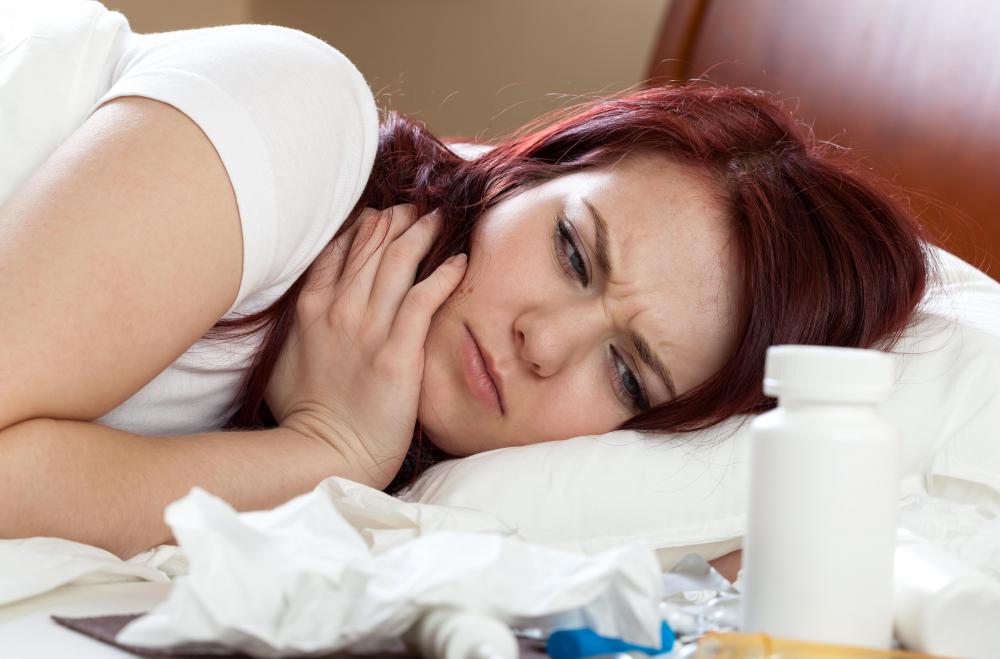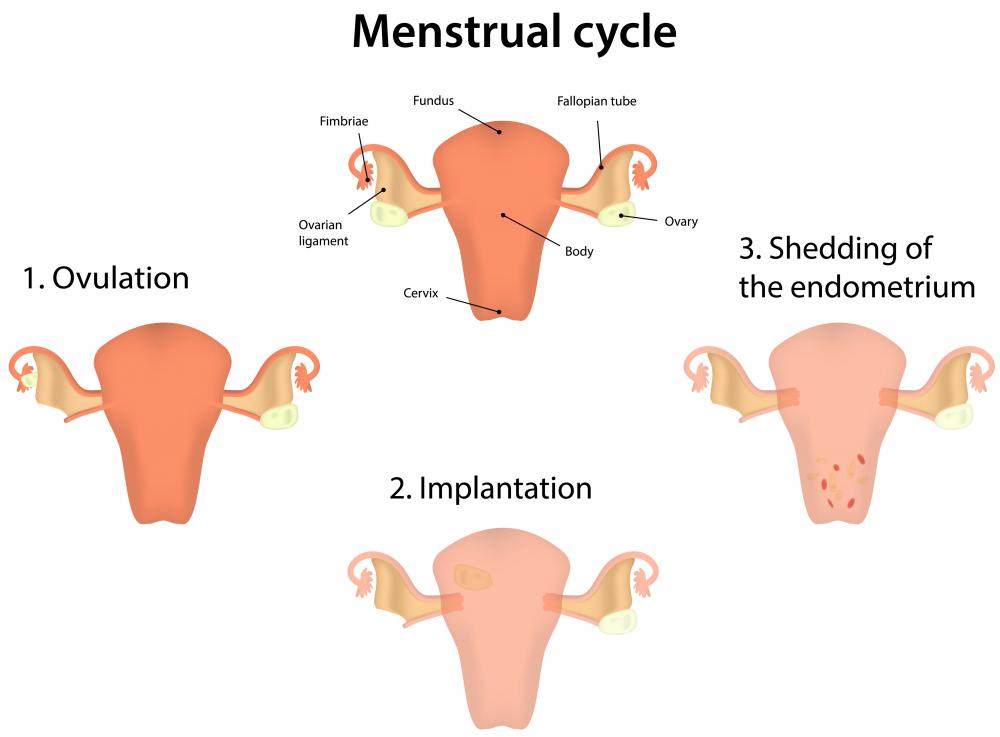At TheHealthBoard, we're committed to delivering accurate, trustworthy information. Our expert-authored content is rigorously fact-checked and sourced from credible authorities. Discover how we uphold the highest standards in providing you with reliable knowledge.
What are Common Causes of Having No Cervical Mucus?
Having no cervical mucus can have several causes, most of which can be easily treated at home, but some of which might require a trip to the doctor. It is normal for women to have dry cervical mucus following a menstrual period. A hormonal imbalance or other factor causing a lack of ovulation is one cause of dry cervical mucus. Certain medications might cause it, and age can be a factor, too. Some women naturally produce less cervical mucus.
Women who have no cervical mucus at any time during the menstrual cycle must first determine whether they are ovulating. The easiest way to do this is with over-the-counter ovulation predictor kits. These work like pregnancy tests but should be used at the same time every day. Instructions might vary by test. These tests detect the shift in hormones that occurs 24 to 48 hours before ovulation.

Women who do not test positive on the ovulation predictor kit for one cycle should try using them every day through another cycle, because ovulation can occur at any time. If ovulation is still not detected, a doctor should be consulted. As long as ovulation is occurring, it is still possible to become pregnant.
Women who have confirmed ovulation but are still experiencing cervical mucus problems should next examine any medications they are taking. Antihistamines, cold and sinus medications, some antidepressants and anti-seizure drugs might cause a lack of cervical mucus. Some drugs should not be discontinued without first consulting a doctor.

After all other causes have been ruled out, having no cervical mucus might be normal for some women. Women who are 35 or older are more likely to have scant cervical mucus. It is still possible to become pregnant with no cervical mucus, but it is beneficial to increase cervical mucus.
Fertile cervical mucus is slippery and stretchy, and it resembles raw egg whites. It aids pregnancy by providing nourishment to sperm, helping carry them through the uterus into the fallopian tubes, and it might help weed out abnormal sperm to keep them from reaching the egg. It also protects sperm from the usually acidic conditions of the vagina and uterus.

Cervical mucus can be checked by inserting a finger into the vagina. There will be a substance on the finger that will be watery, creamy and white or clear and stretchy. Douching might wash away cervical mucus, making it appear as if there isn't any. Douching is best to be avoided, even for a woman who is not trying to become pregnant. If a woman is experiencing vaginal odor, she might have an infection.
AS FEATURED ON:
AS FEATURED ON:














Discussion Comments
I was on anti-depressants for a few years and I had noticed during the final year that I had no cervical mucus. I never put the two and two together until I stopped the medications though. About one month after I quit anti-depressants, I started getting cervical mucus again.
@donasmrs-- Unfortunately, I don't think anyone can help you here. You need to see a gynecologist about this.
Having no cervical mucus during ovulation does not mean that you are no ovulating. You might have fertile cervical mucus but it might be very little and difficult to notice. Cervical mucus does decrease with age. So if you are used to checking cervical mucus by wiping, you might have to check for mucus with your fingers from now on.
I highly recommend getting an ovulation kit first to check if you're ovulating or not. Or directly go to your gynecologist.
By the way, when did your mother enter menopause? If she entered menopause in her forties, you could be experiencing changes in cervical mucus due to perimenopause.
I'm over 40 and I seem to be getting less and less cervical mucus each month. I can't even check my cervical mucus for ovulation any more because it's barely there throughout the month.
Am I experiencing this just because of age? And does it mean that I'm no longer fertile?
Post your comments